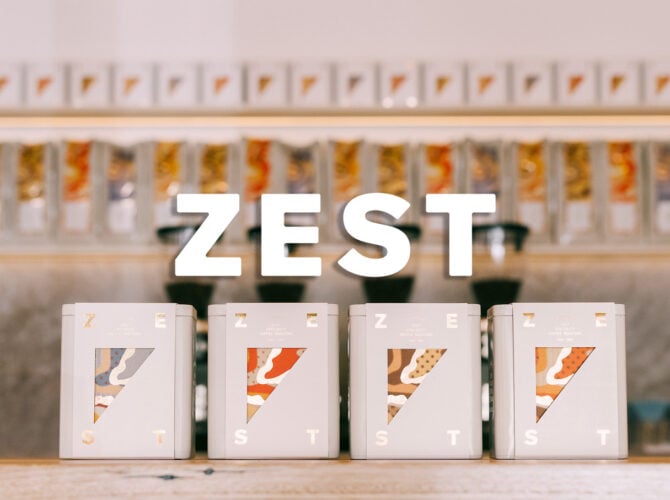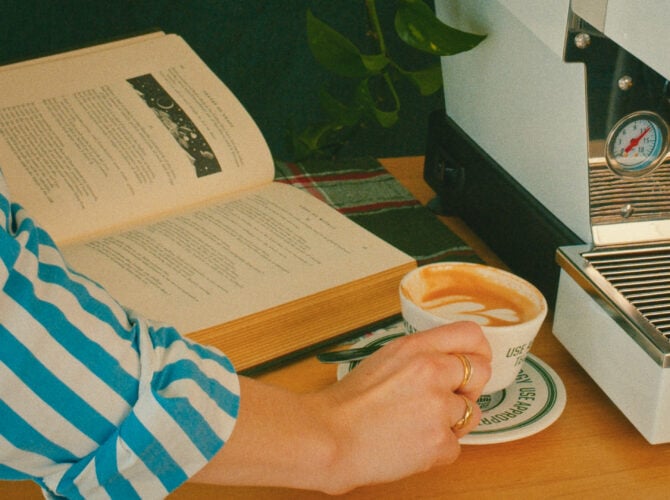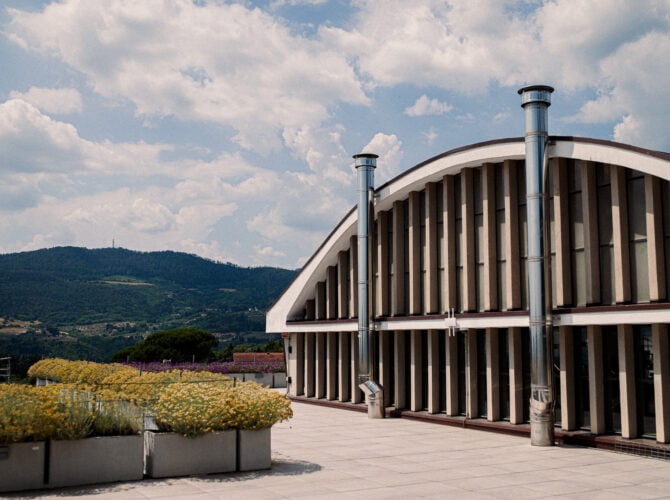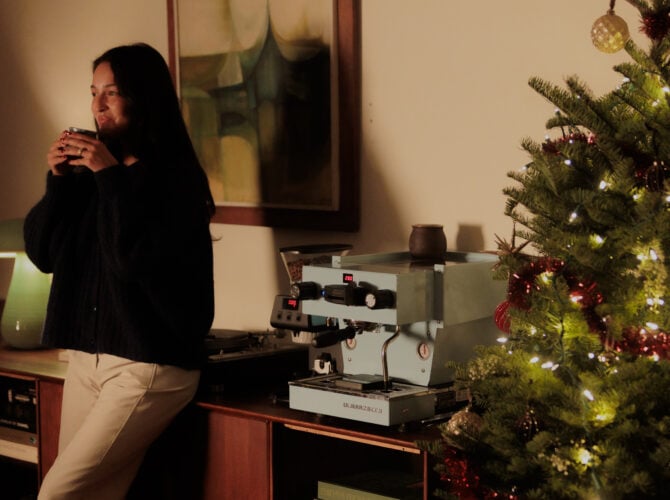The Story of Made in Italy
Writer — Melissa Dixon
———
The story begins in the heart of Florence, where the statue of Il Marzocco stands as a symbol of city’s strength and a point of pride for local artisans and companies alike. La Marzocco, as an espresso machine manufacturer, draws inspiration from the city’s rich tradition of craftsmanship, where generations have worked as everything from stone sculptors to metalworkers. Nestled in this land of tradition and artistry, the company endures.
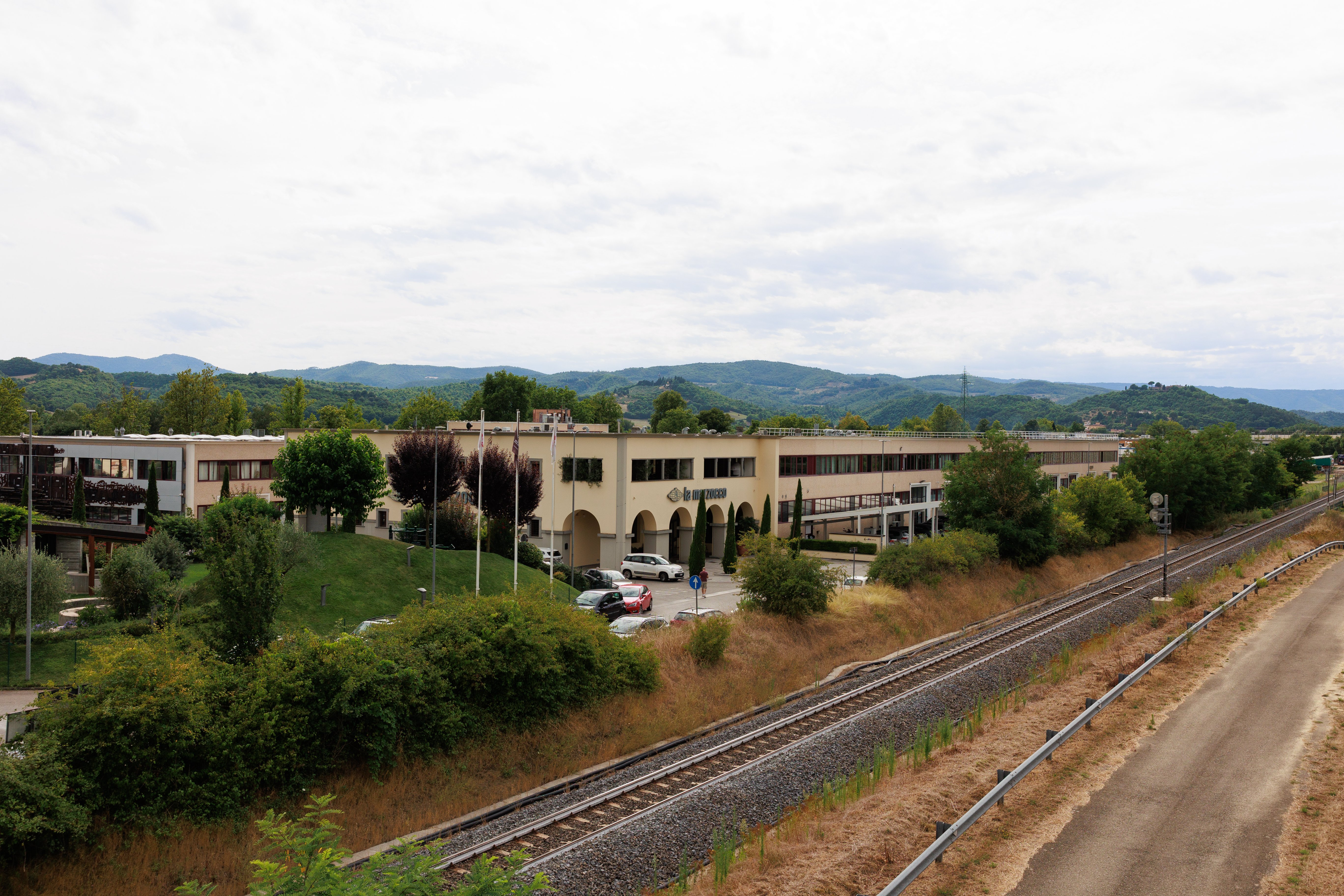
La Marzocco Espresso Machines
As demand for premium home espresso machines continues to grow, one preference amongst enthusiasts remains clear: espresso machines made in Italy.
While many manufacturers have shifted production elsewhere, La Marzocco has stayed true to its roots. The company continues to design and build its machines in the Tuscan hills outside Florence, where it has operated for nearly a century.
Few modern brands are as closely woven into Italy’s heritage. What began in 1927 as a small Florentine workshop where Giuseppe Bambi(a brass artisan trained at the Italian National Railway Company) and his brother Bruno set out to build espresso machines, has grown into one of the most respected names in coffee. Today, models like the Linea Mini and Linea Micra regularly carry lead times, yet the world continues to wait in line for the chance to own one of their own. Despite the increasing pressure to expand output, La Marzocco has resisted the classic shortcuts we might expect to see. Instead, it is enlarging production capacity within its Italian factory, honoring the Bambi brothers’ legacy of craftsmanship and reinforcing a commitment to both quality and people.
Nowhere is this philosophy more evident than inside the factory itself. This summer, I traveled to Tuscany with my family to see it firsthand and report back.
From The City of Florence into The Hills of Tuscany
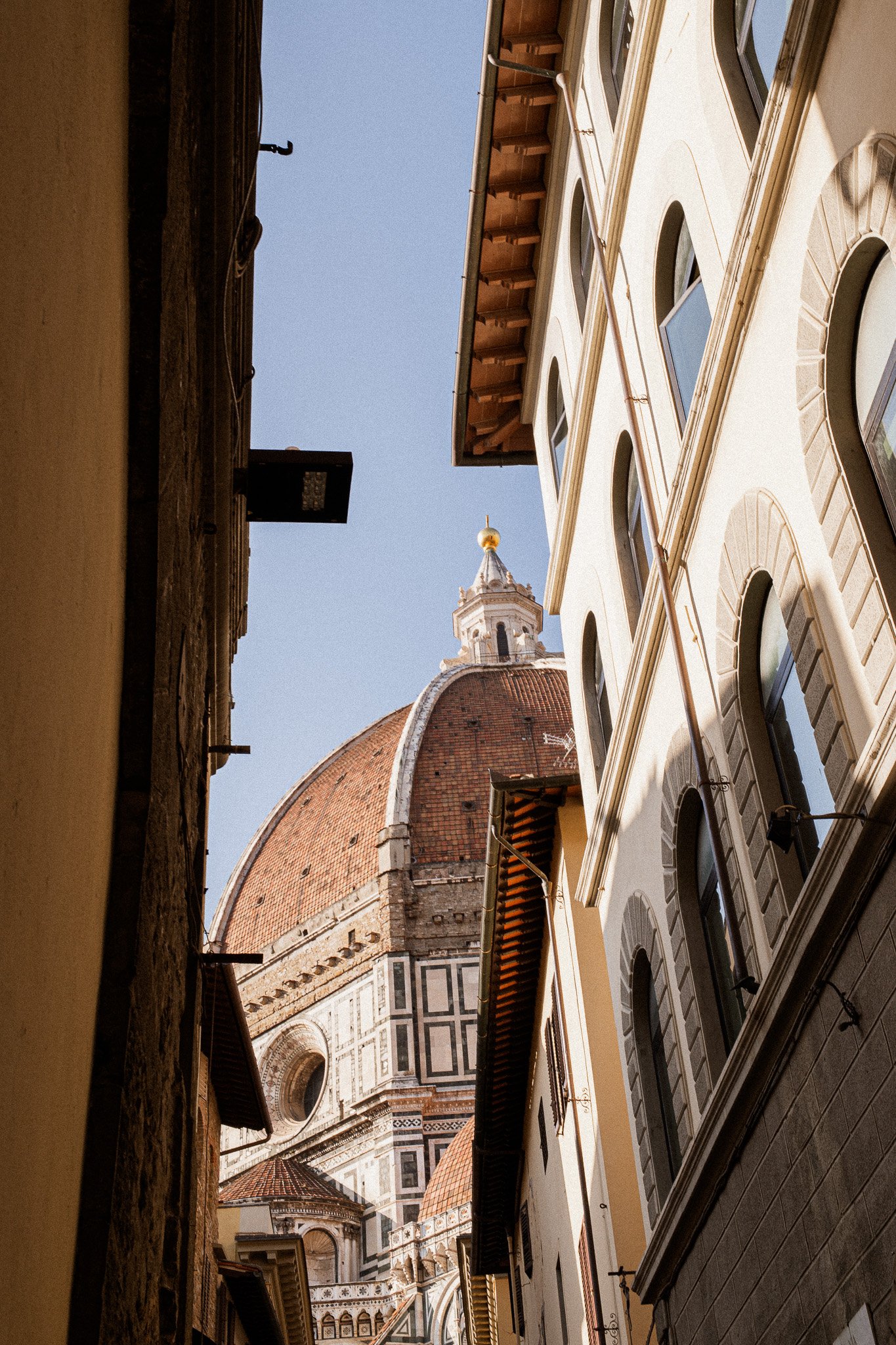
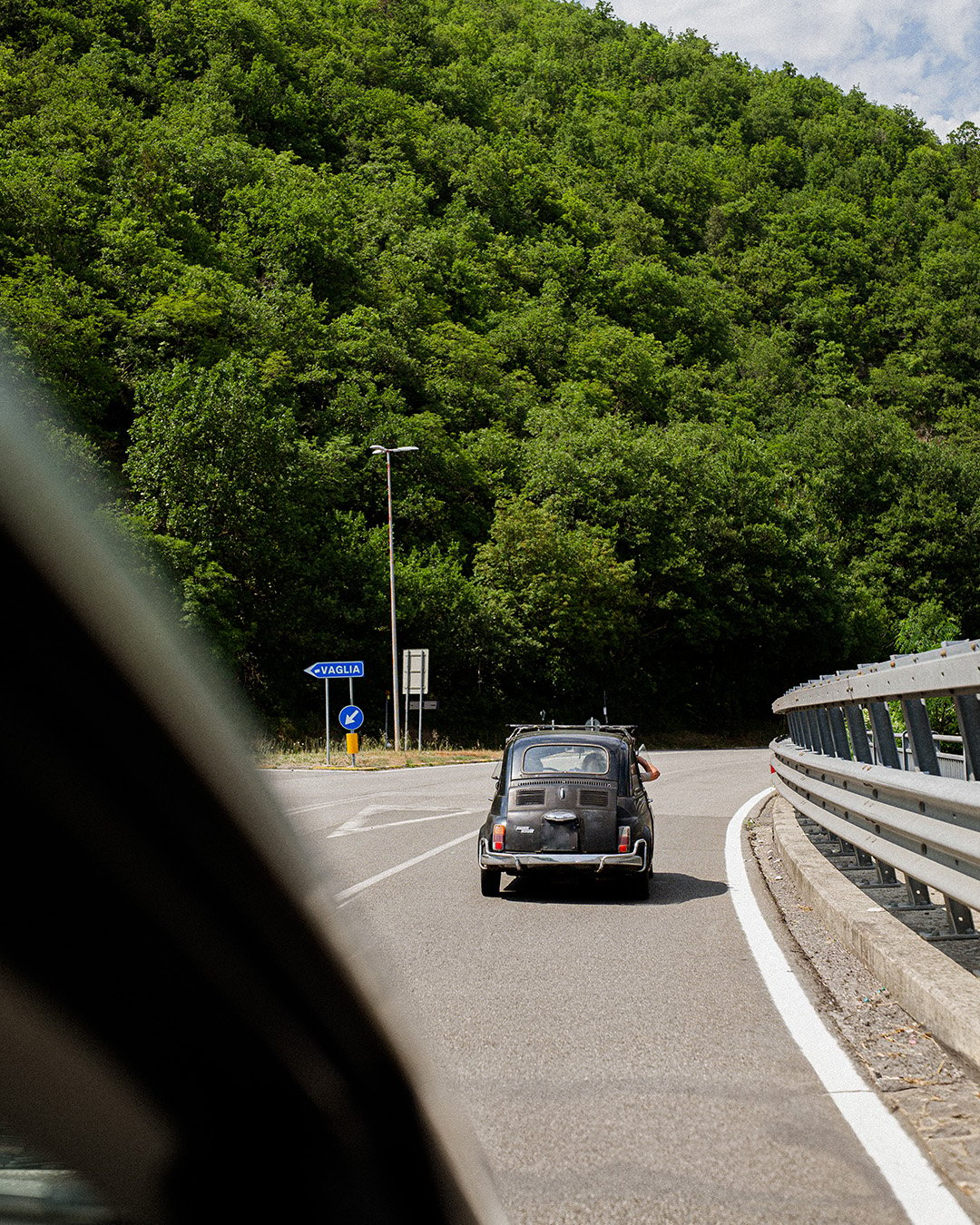
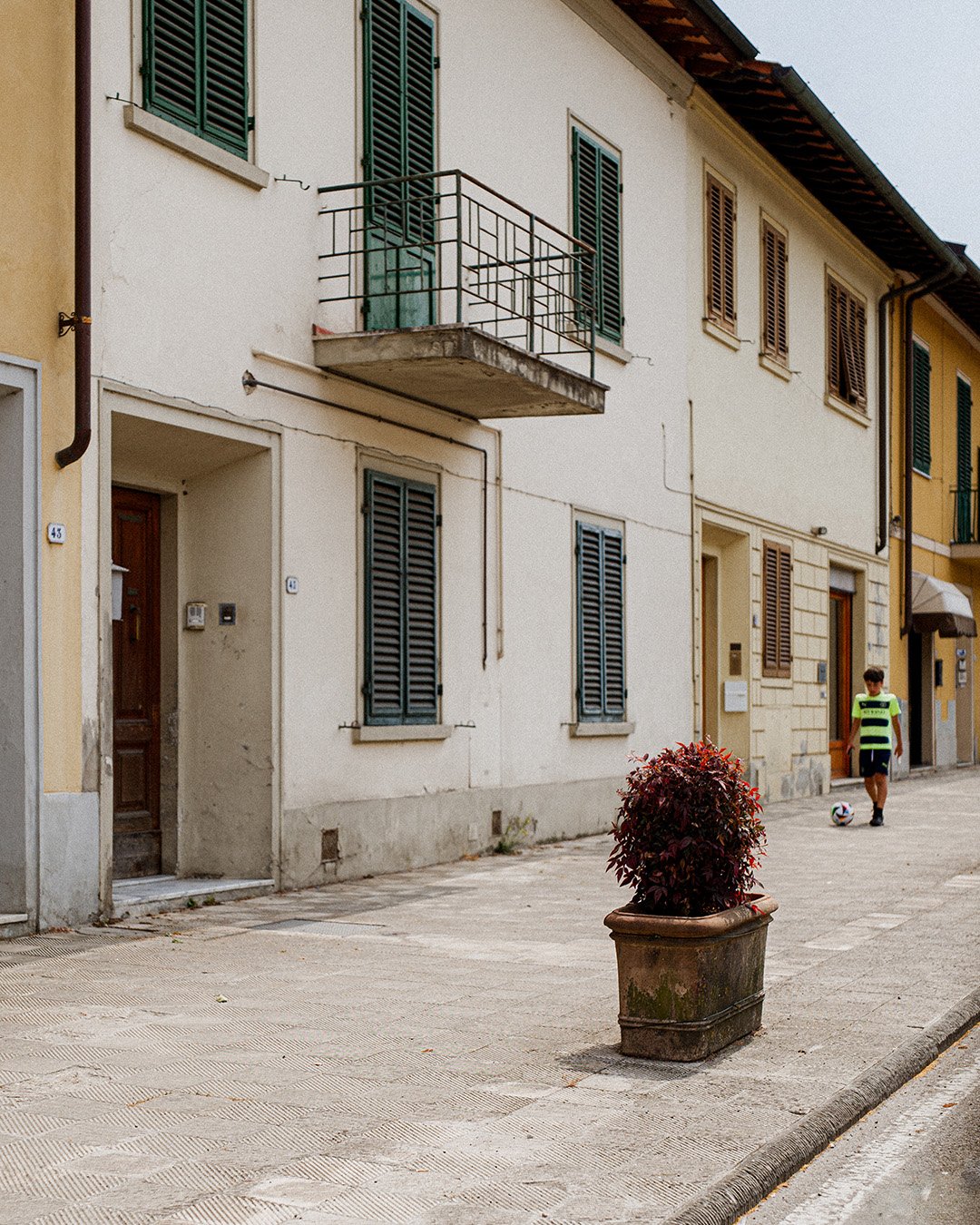
From left: Cathedral of Santa Maria del Fiore; Small villages lining the road along the way to Scarperia e San Piero.
We meet up with Dave Bise, Global Director of La Marzocco Home, and leave the city of Florence behind, climbing into the surrounding Tuscan hills. The drive winds past quiet towns and through La Via del Latte, or the Valley of Milk, a region long known for its dairy farming. Eventually, the landscape opens to reveal the town of Scarperia e San Piero, home to La Marzocco’s modern factory since 2009.
That move marked a turning point. Though the company was founded in 1927 and earned its reputation through commercial espresso machines revered in cafés around the world, it is here, in this quiet Tuscan town, that the next chapter took root. The company officially entered the home market in 2015 with the launch of the Linea Mini. Then came 2020. As the COVID-19 pandemic disrupted café culture and sparked a surge in home coffee consumption, La Marzocco responded by deepening its focus on home users and released the Linea Micra.
Known for its meticulous craftsmanship and robust industrial design, La Marzocco didn’t simply shrink its commercial machines. It reimagined them for the kitchen counter, ushering in a new era of at-home espresso. Today, that effort is accelerating. I’ve come to see it all, and to understand how our brand, built on artisan principles, is scaling to meet modern expectations.
What Does Factory Life Look Like?
At the factory entrance, a quote from Kent Bakke, former Honorary President, greets both visitors and employees. I’ve had the privilege of hearing Kent’s stories of La Marzocco’s global journey at the Bakke Coffee Museum in Seattle, surrounded by his personal collection of espresso machines. Standing there, I’m reminded that the momentum he saw spark decades ago hasn’t gone out. Instead, it’s continued to grow and evolve into something my generation is now getting to be a part of.

“My hope is that La Marzocco will remain Italian at heart but will also be able to embrace a global perspective. I was lucky enough to meet Giuseppe and Bruno, the Bambi brothers, and to work with Piero. We wish to maintain that commitment and vision which have distinguished us from the very beginning of this adventure. This growth, both industrial and human, for me has been much more than an expansion of the company. This journey has allowed us to grow personally, as a family, as a company that produces coffee machines.”
— Kent Bakke
Today, the company is expanding its residential offerings further, including the addition of new production lines dedicated entirely to home equipment. “We’re adding in a second production line for the Linea Mini this year,” says Dave Bise. His enthusiasm is contagious as we continue deeper into the factory. As we go, he acknowledges the challenges that come with running a modern factory in Europe. Rising labor costs, strict regulatory environments, and global competition are constant hurdles to overcome. Even so, Italian craftsmanship remains at the core of La Marzocco’s identity and continues to define what sets the brand apart.
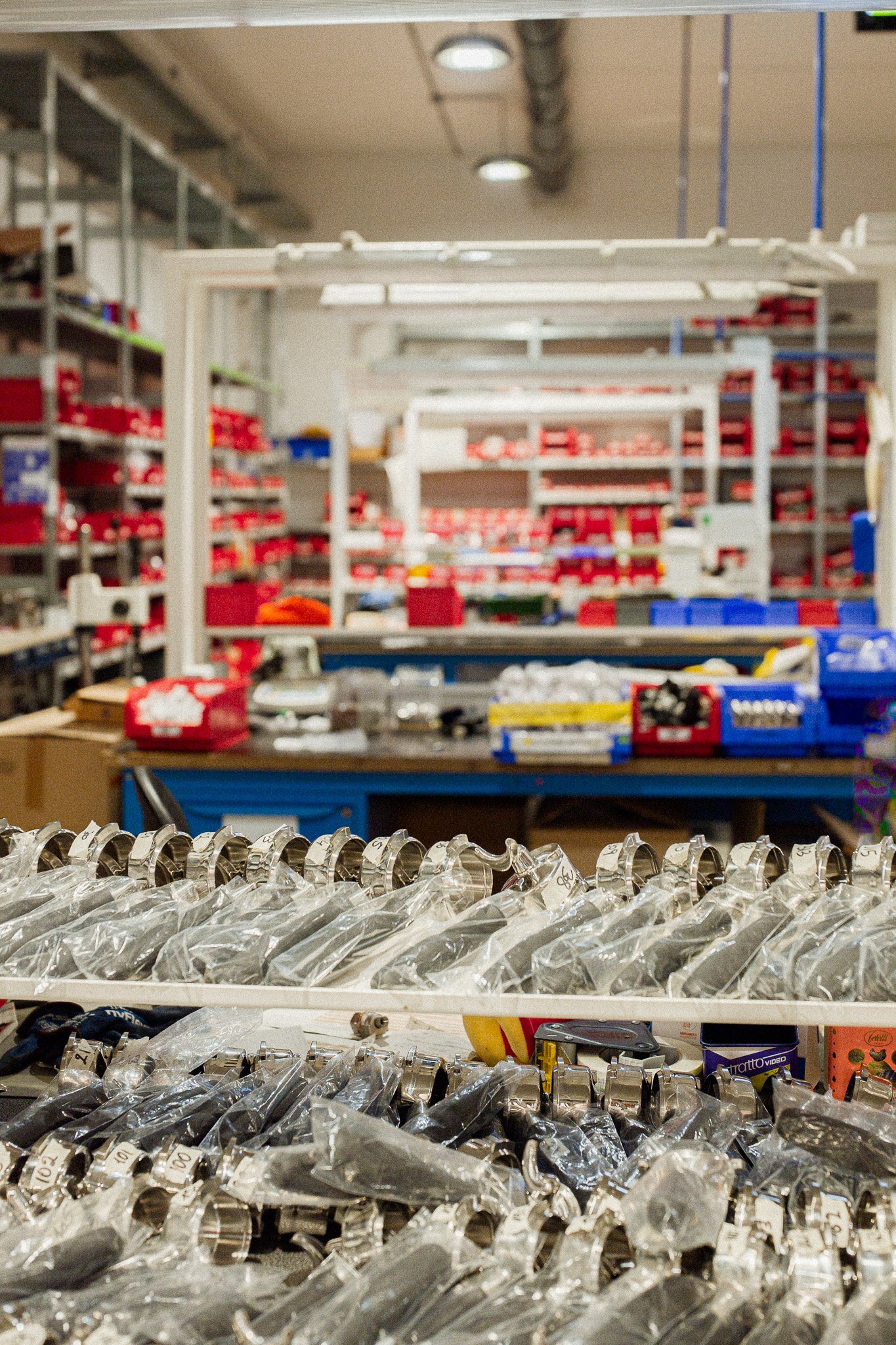
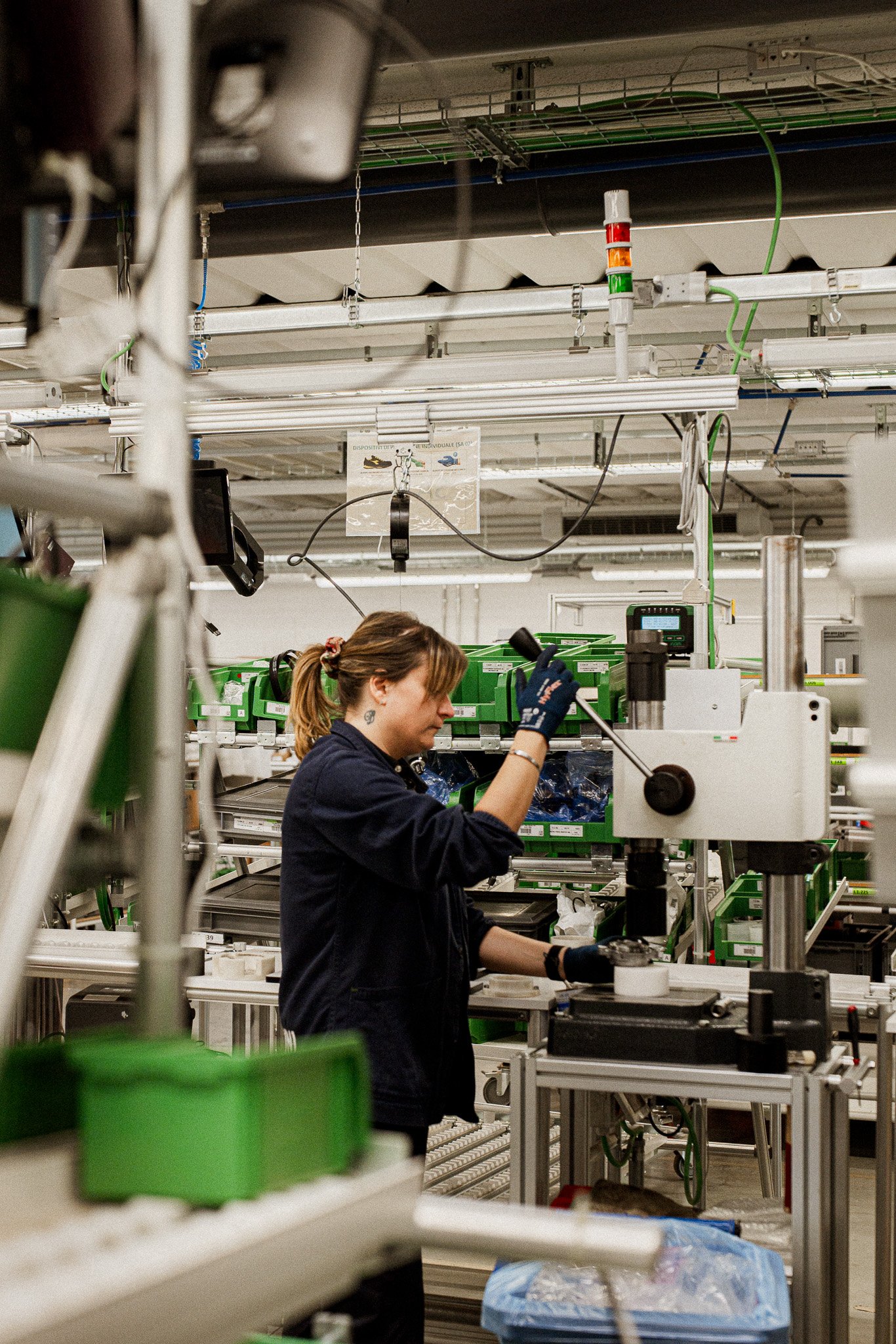
La Marzocco Factory dose everything from assembling machines to manufacturing certain internal components.
Entering the main section of the building we are led through the impressive R&D and commercial departments. We see whole floors where machines are on individual carts and wheeled to station after station for assembly. Moving on to where internal components are being made, my head begins to spin at just how much is happening at once. Employees are engaged and alert as we go by, often exchanging quiet conversations or quick smiles. Workers stand at stations, some tasks look simple and deliberate, others highly involved and a little terrifying to my eyes. The environment is full of the sound of tools and equipment. The workforce is diverse, with men and women of varying ages working side by side. A new found appreciation for manufacturing lodges itself in me as we are led through row after row and I watch everyone focus on a unique detail in the process. This is real work. The atmosphere lacks the detachment often seen in automated or stressful fast paced environments. Instead, it reflects a workplace grounded in pride, effort, and care.
Growth, both Industrial and Human
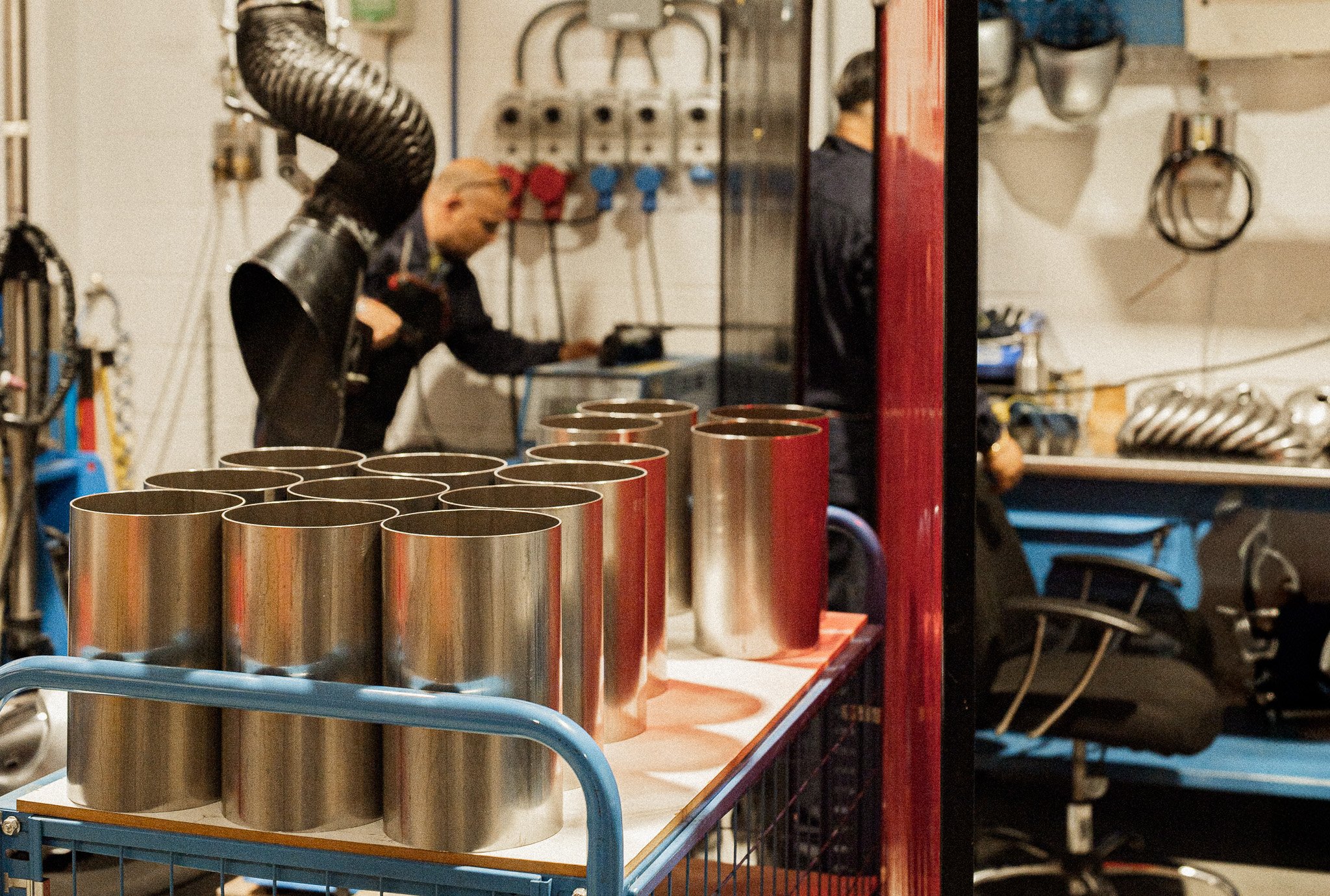
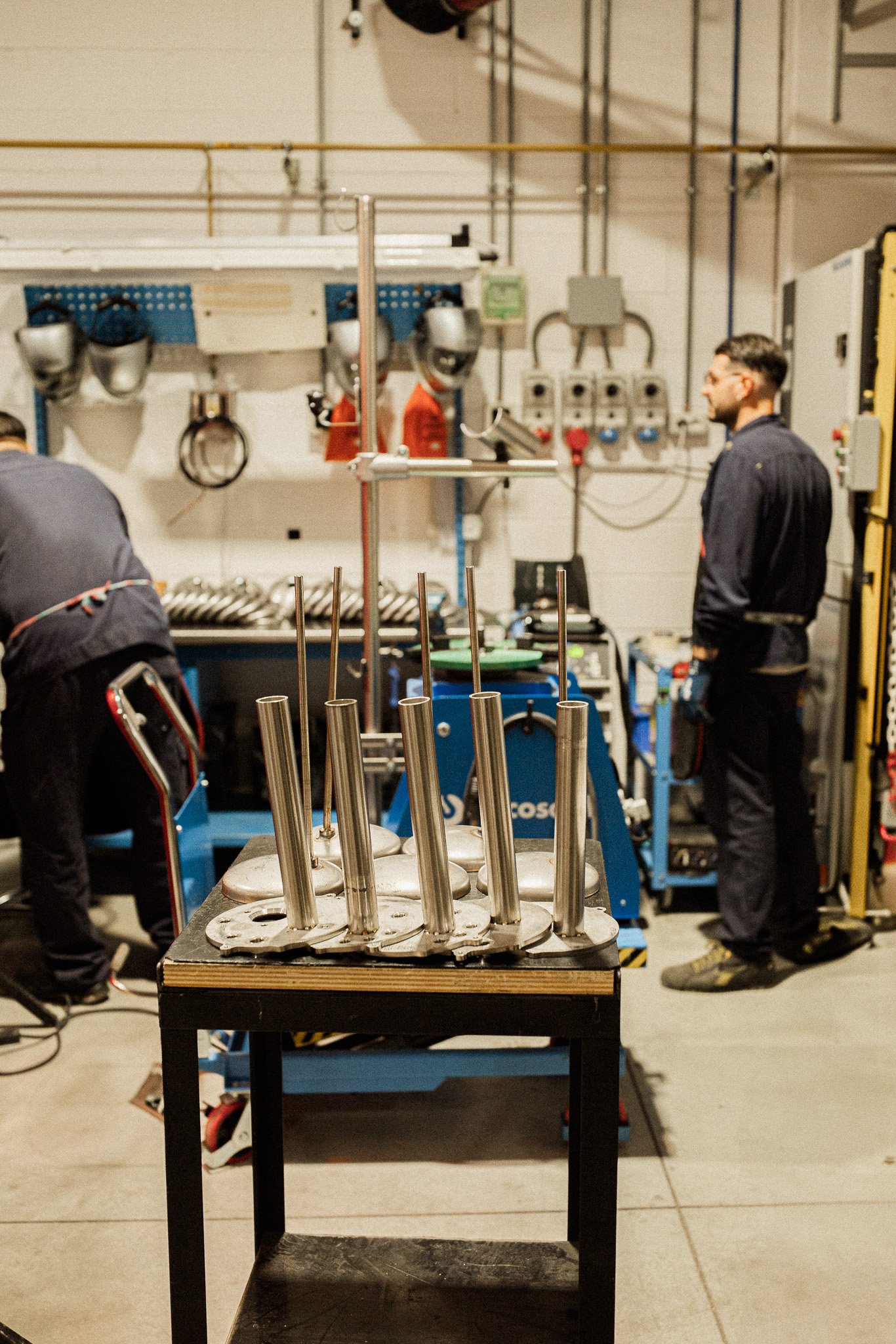
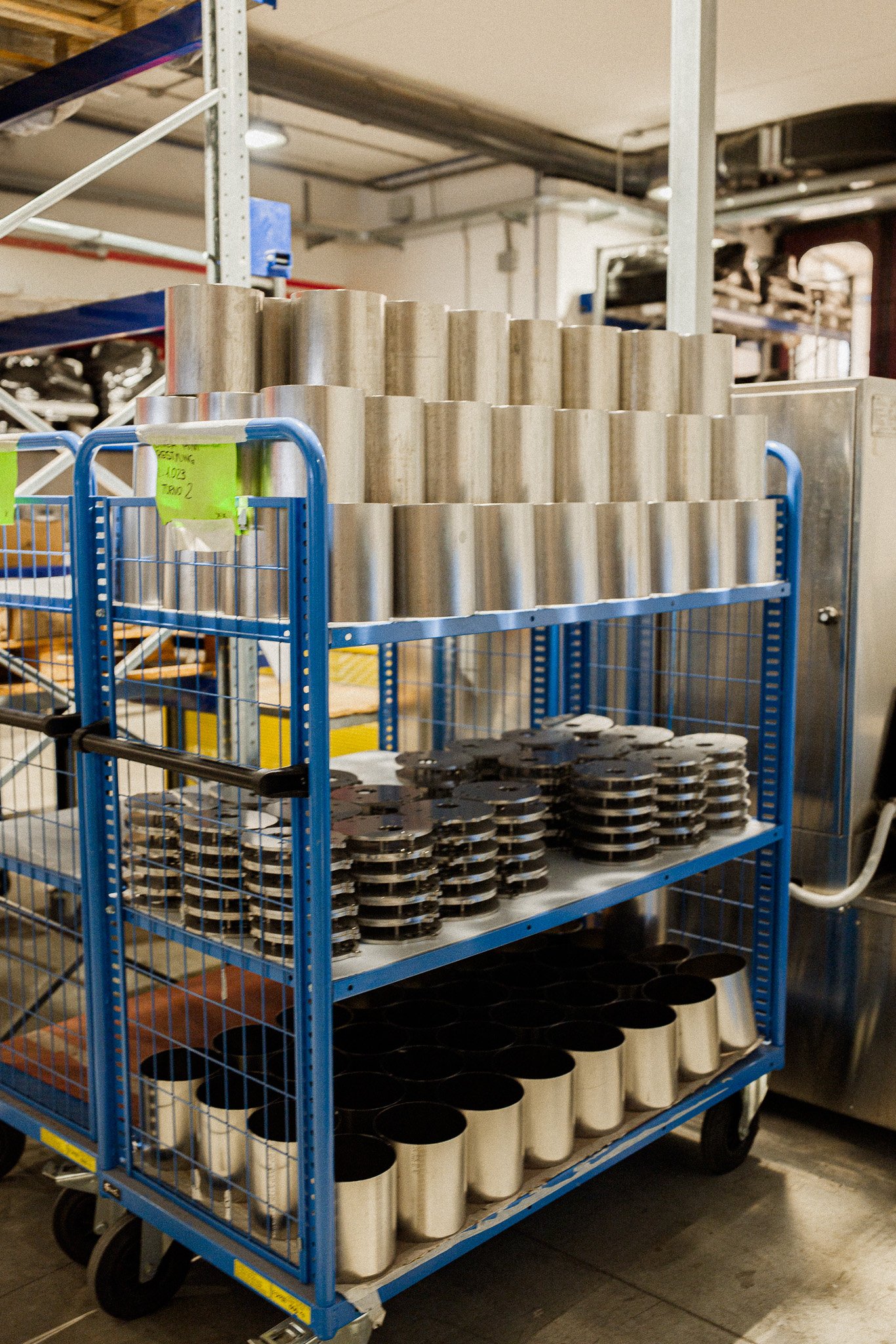
The La Marzocco Factory manufactures its own boilers, the heart of every espresso machine.
In a separate room, a specialized team is focused on welding steam boilers. This is an essential component in every espresso machine. The atmosphere here is charged with a low hum, and we are cautioned not to look directly at the glare of the welding torches. Each boiler is being crafted from stainless steel, with dimensions tailored to the specifications of different machine models. They range from the large 4 group Linea PB machines, all the way down to the tiny Linea Micra boilers. Observing this stage of production up close is striking. It is especially interesting for me given the boiler’s critical role in delivering the consistent steam pressure required for drinks like cappuccinos (my favorite drink).
As we continue on, home machines in various stages of production appear, the large room is filled with workbenches of them. Some are bare stainless-steel frames. Others are in the middle of being assembled, with the freshly made boilers being bolted in. Nearby, technicians carefully fit body panels into place. Finished machines are undergoing pressure testing. Gauges showing real time pressure readings as steam releases in short bursts through protective sleeves attached to the machines. Workers wear gloves and sleeves of their own as they guide each unit through a quality control check before moving it to final inspection and boxing.
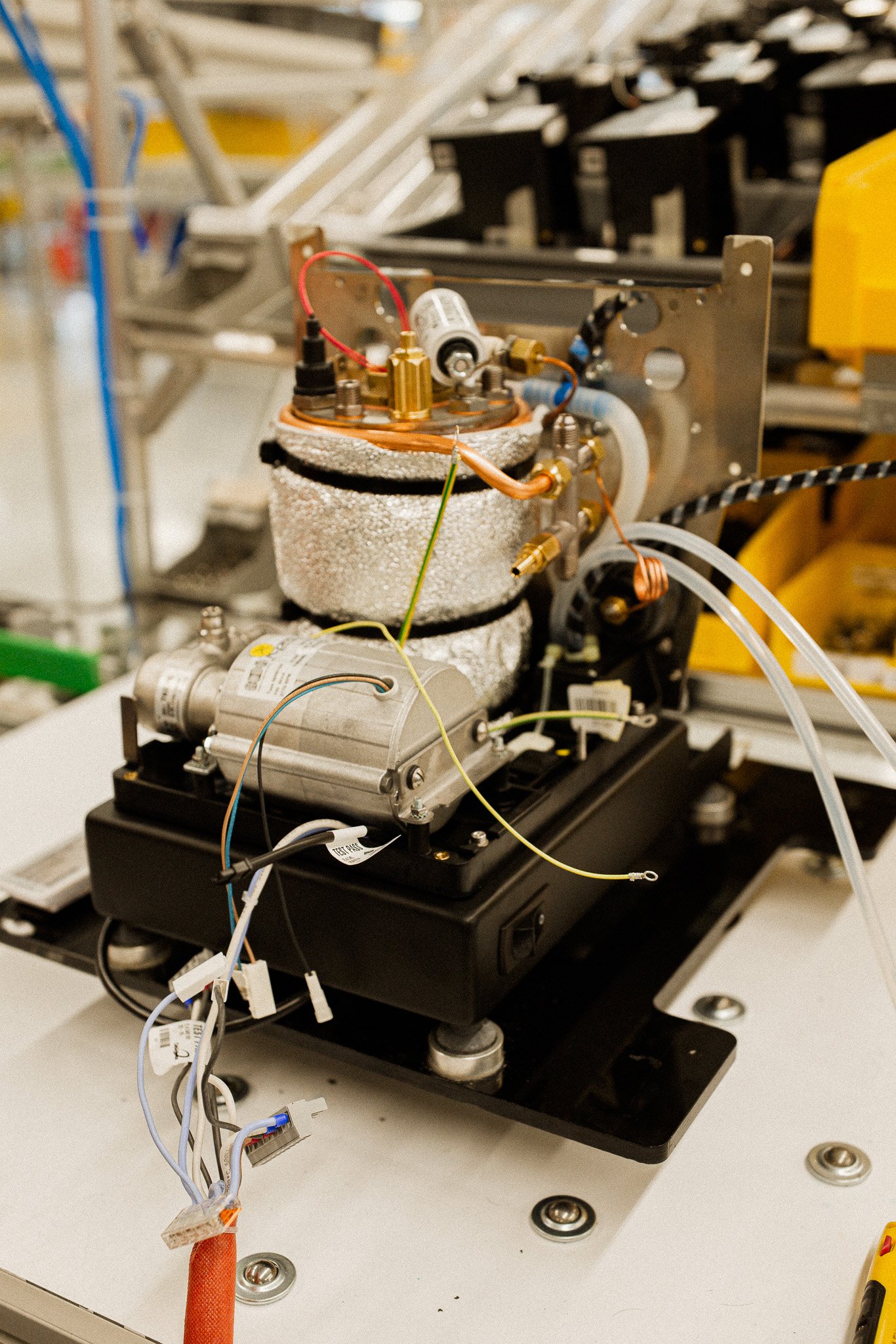
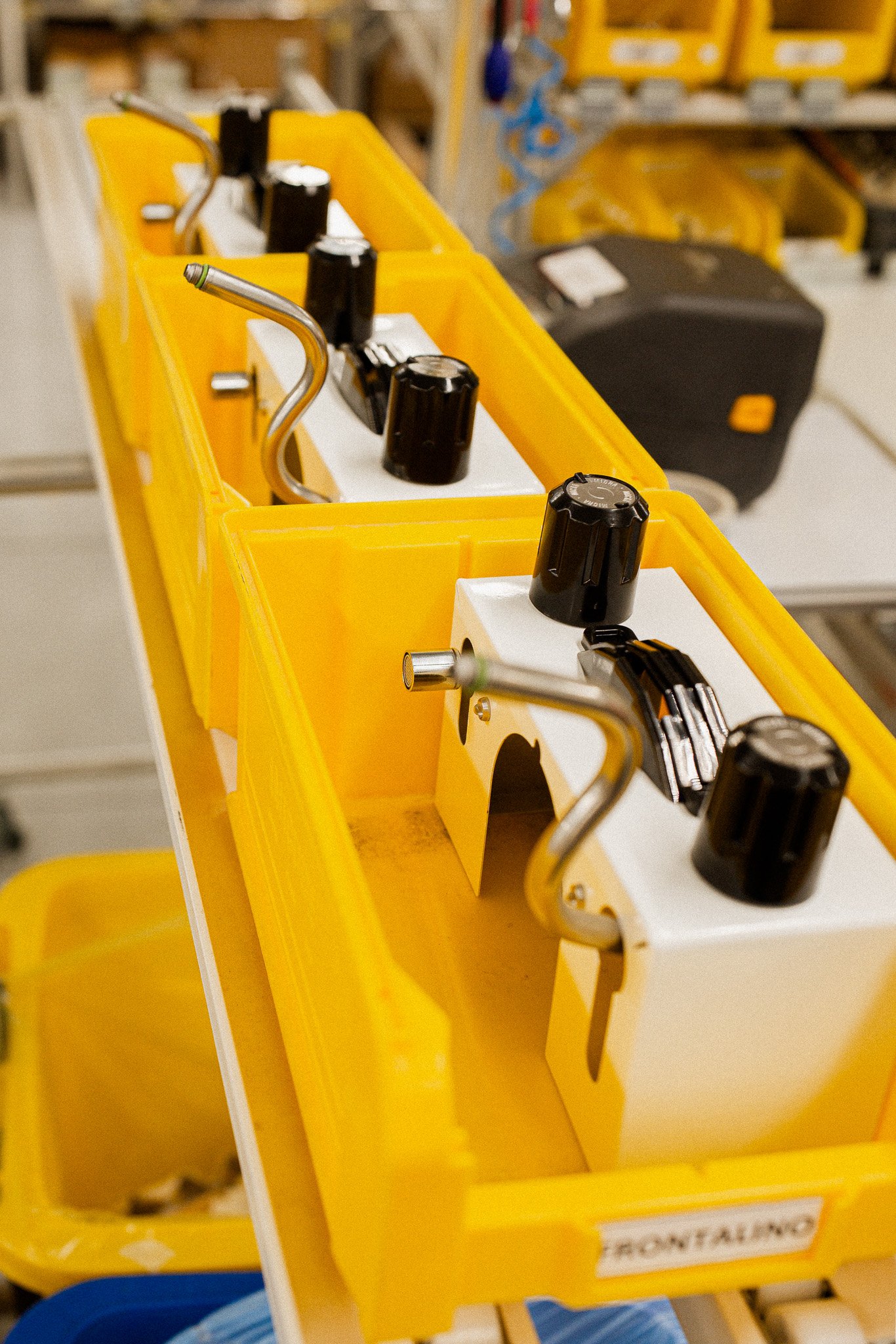
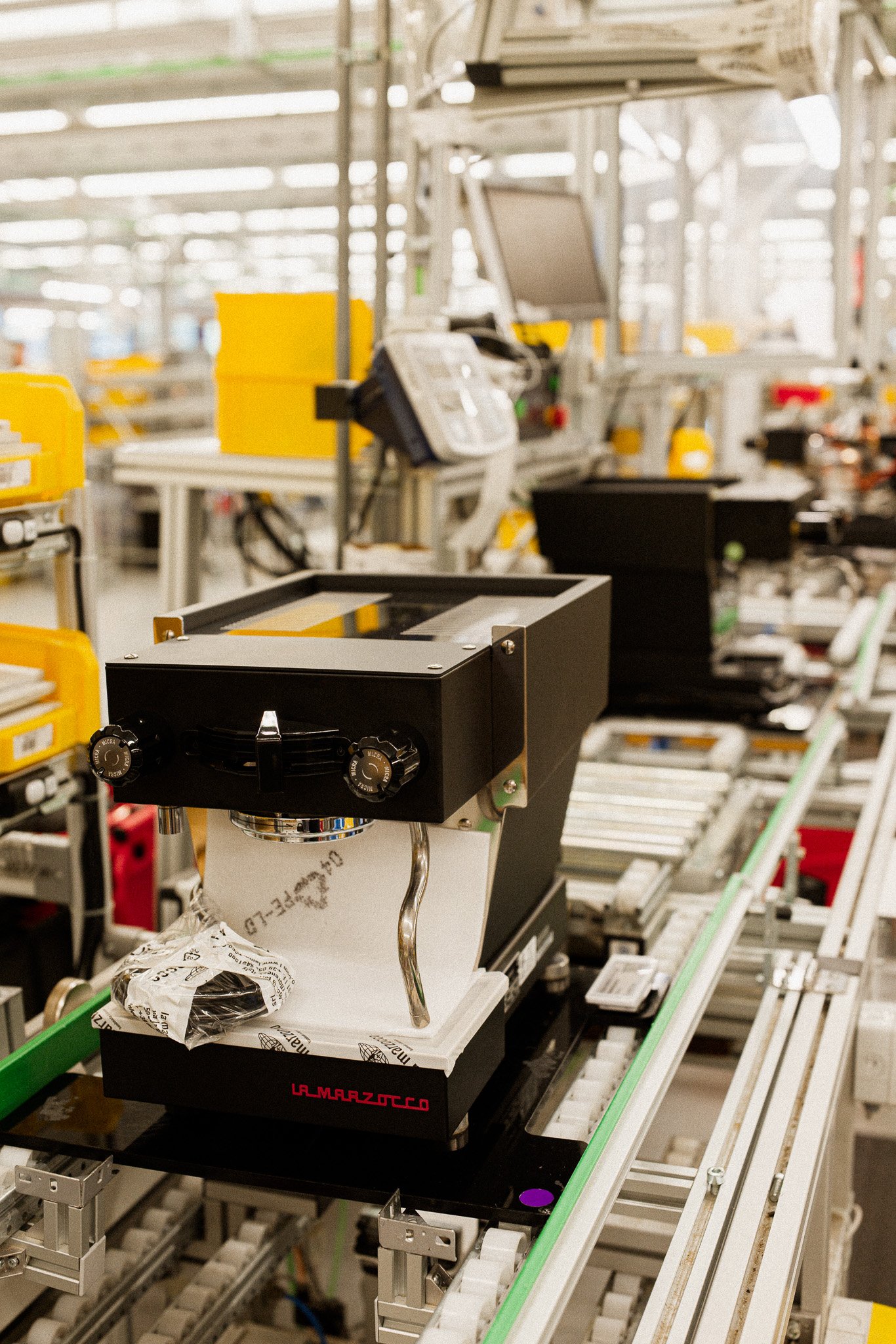
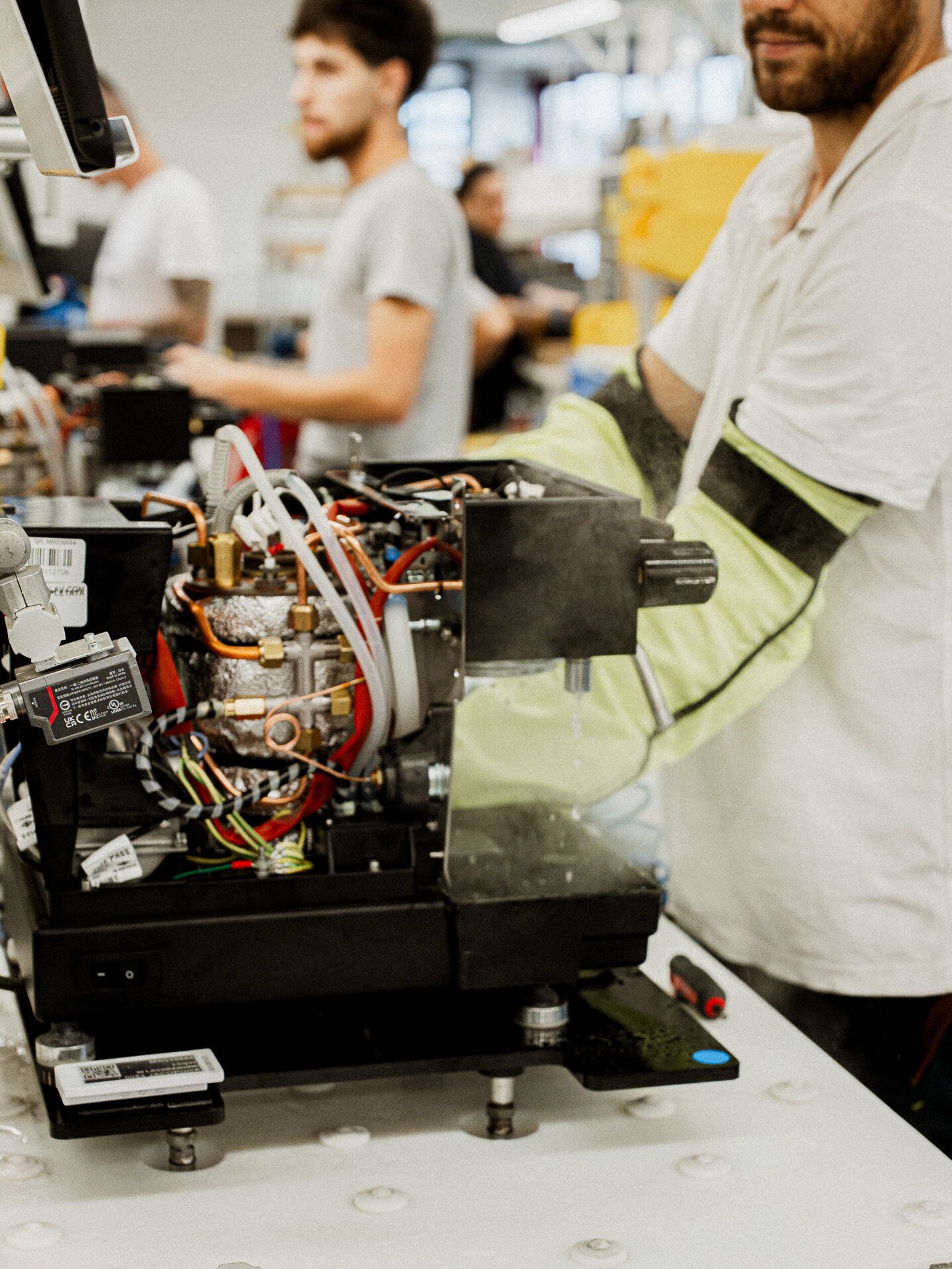
Machines are built in stages and are rolled down the line as each new part is assembled.
One of the factory’s defining characteristics is how much of the process remains manual. Every step, from welding to wiring, is performed by hand. Robots are absent from the floor. The decision is intentional, reinforcing a culture of craftsmanship that has become increasingly rare in modern appliance manufacturing.
Even for those of us who work for La Marzocco but do not work in Italy, there is a strong sense of being a part of something special. Thanks to the spirit that was wired in from the beginning, La Marzocco feels like a contrada(Italian for neighborhood or district). Saying you work at La Marzocco means something to the people who say it and to people who hear it. Like any community, it’s not perfect, but it has values and goals that are worth fighting for and it takes all of us to keep it going.
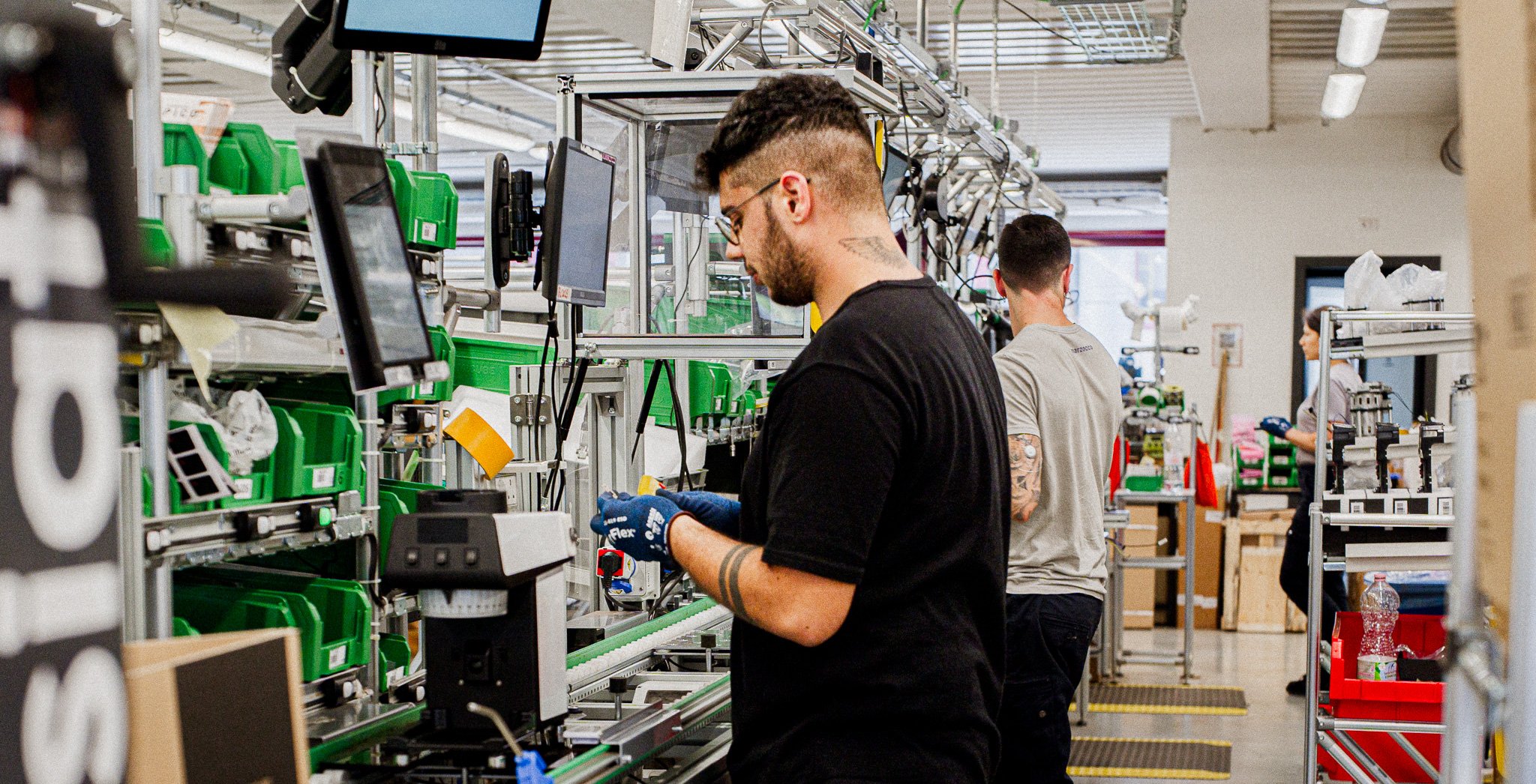
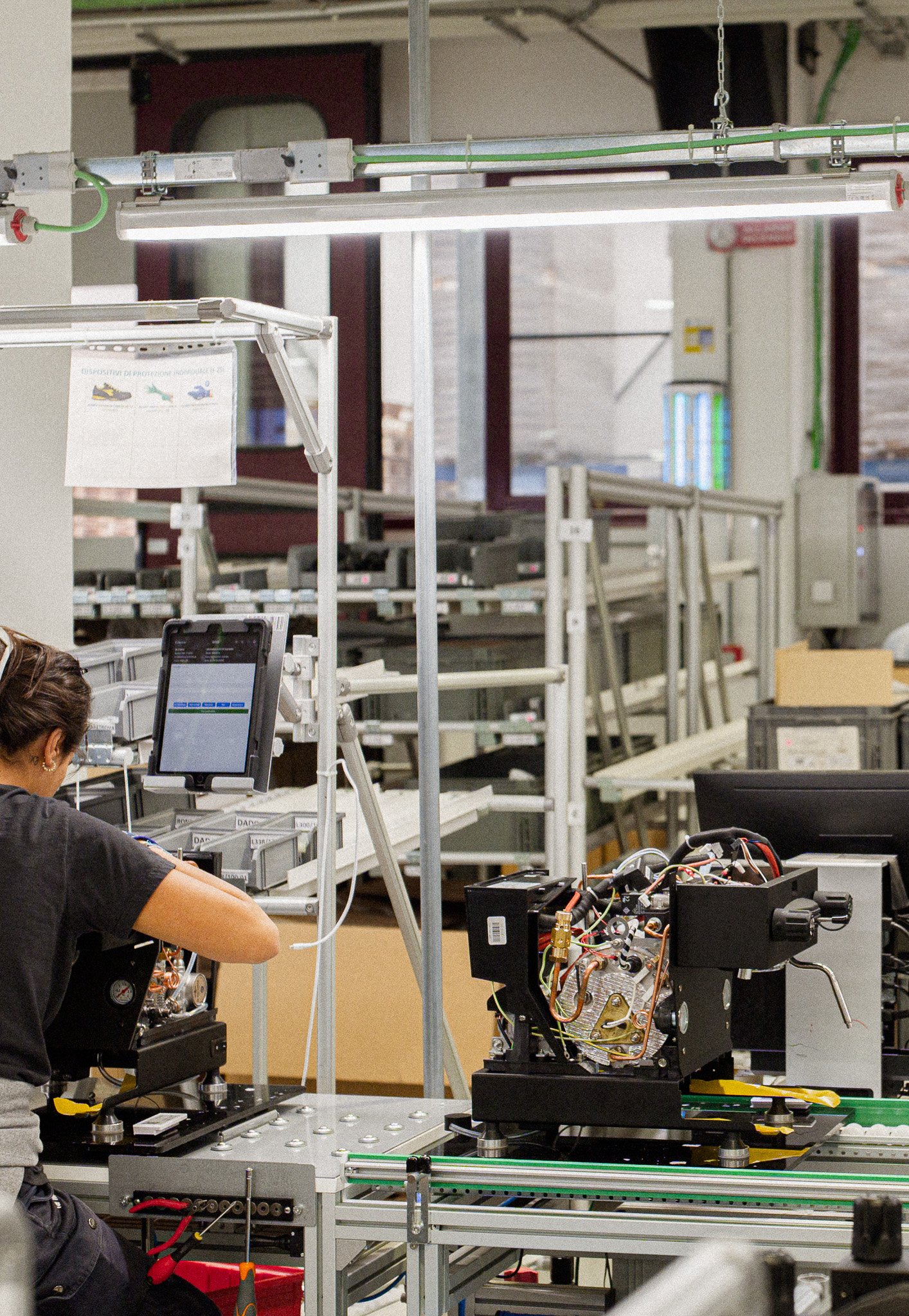
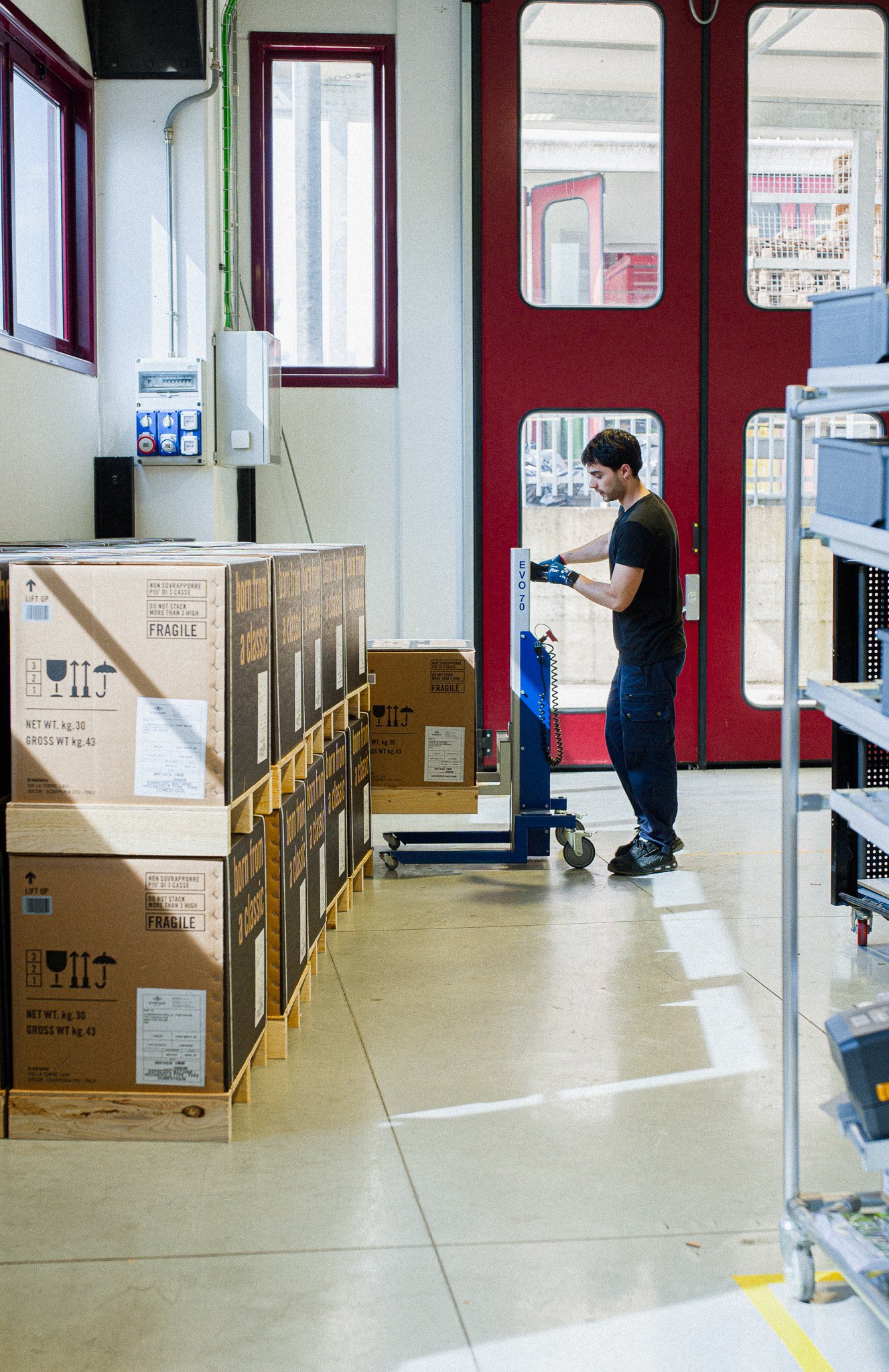
This machinery demands care from beginning to end.
La Marzocco’s devotion to hand assembly and local production is honorable in our increasingly globalized industry. Inside the Scarperia factory, I see a model that is both resilient and relevant. It combines tradition with technical precision and is on its way to meeting a growing worldwide appetite for high-end home and café espresso machines.
By Melissa Dixon | Photographs by Melissa Dixon for La Marzocco & Gage Forster for La Marzocco

